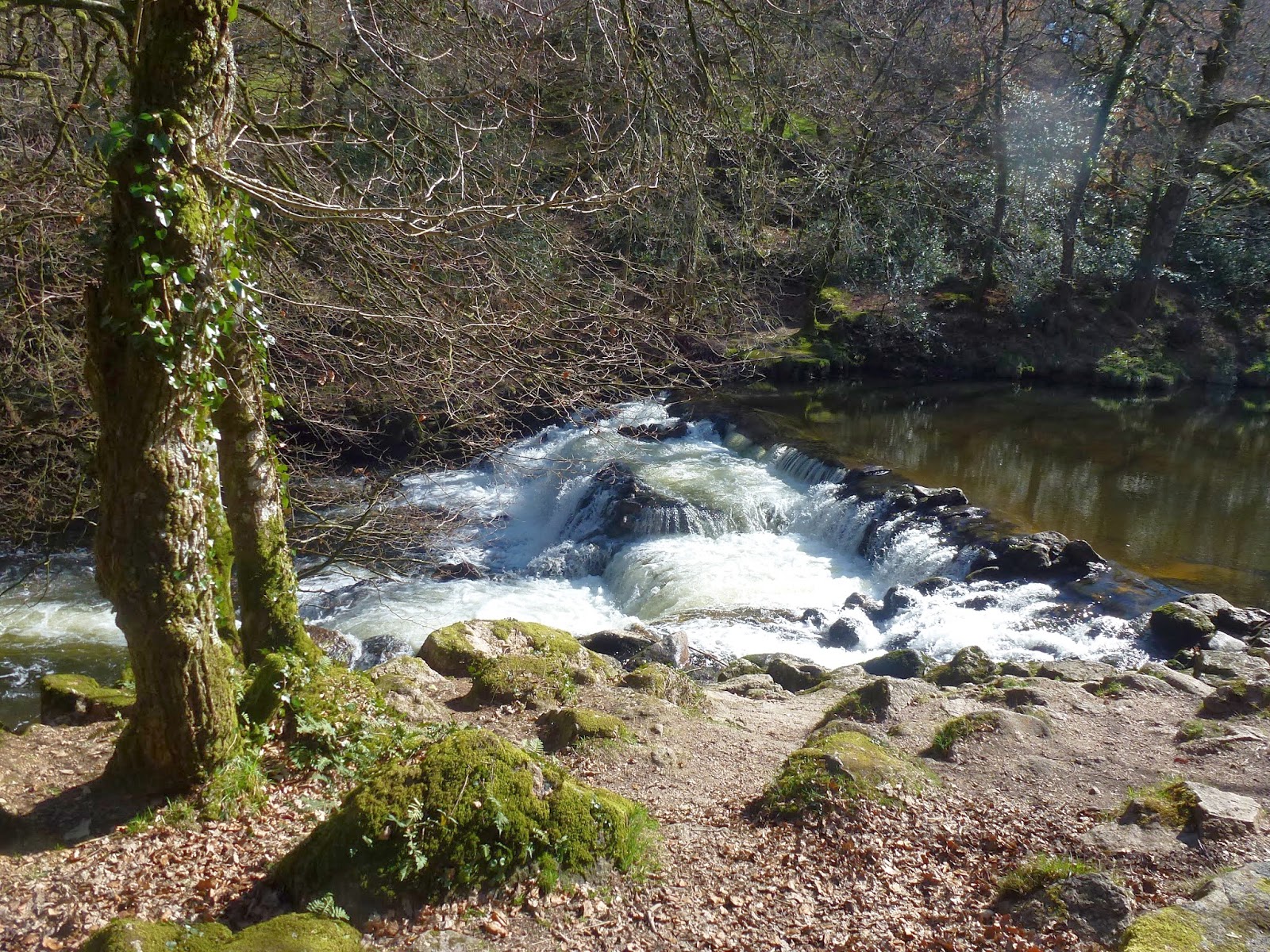I have been to Dartmoor for
the weekend in the spring sunshine. It can’t be said that the southern half of England
has any sense of wilderness by North American standards, but Dartmoor is as
good as it gets – a bleak, eroded, atmospheric plateau of moorland and granite
tors, once covered with trees, and peppered with prehistoric standing stones and
hut circles, moss covered boulders, craggy, gnarled trees bent by the wind,
bogs and fast flowing streams.
Under a light blue sky it’s cheery and bright. In the mist – think of the terrifying howl of the Hound of the Baskervilles. It comes with its own legends. Whilst camping here years ago with a handy little guide to the ghosts of
And I visited a lovely Cornish church – St Swithins at
Luancells outside Bude – a typical granite church, with its own holy well (good
for eye complaints), set above a small stream, among trees animated by
cawing, nest-building rooks, daffodils and celandines and the first bees.
It’s perfect. Ancient tombstones carrying the names of long generations of the same families – before people got restless and lost the sense of place; ancient wooden pews, gnawed by time; the local gentry reclining in leisurely fashion in their comfortable wall monuments; a list of vicars reaching back 700 years – men who sound like characters from Arthurian legend: Sir John de Launcelas, Sir Philip de Romelode, Sir Baldwin Tybot (they were a titled lot in the Middle Ages) – and the splendidly named Sir Walter Cola; fifteen century floor tiles and cheery epitaphs on memorial slabs, such as this:
It’s perfect. Ancient tombstones carrying the names of long generations of the same families – before people got restless and lost the sense of place; ancient wooden pews, gnawed by time; the local gentry reclining in leisurely fashion in their comfortable wall monuments; a list of vicars reaching back 700 years – men who sound like characters from Arthurian legend: Sir John de Launcelas, Sir Philip de Romelode, Sir Baldwin Tybot (they were a titled lot in the Middle Ages) – and the splendidly named Sir Walter Cola; fifteen century floor tiles and cheery epitaphs on memorial slabs, such as this:
Life is an inn; think
man this truth upon;
Some only to breakfast
and are quickly gone;Others to dinner stay and are full fed;
The oldest man sups and goes to bed.
Large is his debt who lingers out his day;
Who goes the soonest has the least to pay.
I think the light-hearted message here (apart from living
being a form of gluttony) is that the sooner you die, the fewer sins you have
to work off. Phew.





